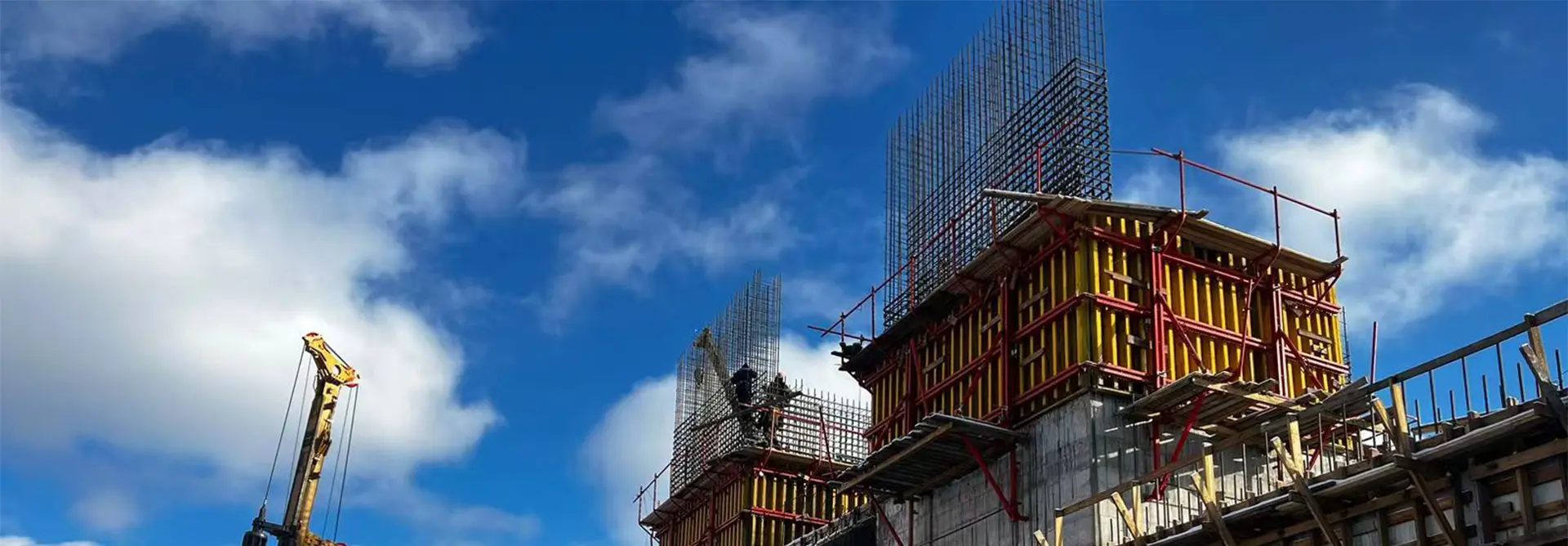Wall formwork is an essential component of any construction project that involves the construction of walls. Lianggong Formwork Company is a leading manufacturer of wall formwork solutions for the construction industry. The company offers a wide range of wall formwork solutions, including the H20 timber beam formwork system, steel frame formwork system, aluminum formwork system, plastic formwork system, single-side bracket formwork system, and steel formwork system. In this article, we will explore Lianggong Formwork Company's wall formwork solutions and their unique features.
Wall formwork is a construction system used to shape and support concrete during the pouring process for vertical structural elements like walls. Its purpose is to ensure that the concrete sets correctly, achieving the desired shape, size, and strength for the wall.
The main types of wall formwork include:
• Adjustable Wall Formwork: Can be easily adjusted to fit different wall sizes and heights.
• Fixed Wall Formwork: Designed for specific wall dimensions and is not reusable for different sizes.
• Reusable Wall Formwork: Made from durable materials like steel or plastic, designed to be used multiple times.
• Prefabricated Wall Formwork: Pre-manufactured components that can be quickly assembled on-site.
Common materials for wall formwork include:
• Wood: Traditional and cost-effective but less durable for repeated use.
• Steel: Highly durable and reusable, ideal for large-scale projects.
• Plastic: Lightweight, easy to handle, and environmentally friendly.
• Aluminum: Lightweight and strong, often used for prefabricated systems.
A typical wall formwork system consists of:
• Form Panels: The main structure that shapes the concrete.
• Supports and Braces: Ensure the formwork remains stable during concrete pouring.
• Fasteners: Used to secure the panels together.
• Concrete Accessories: Such as joints, ties, and leveling devices.
• Adjustable or Fixed Framework: Depending on the type of formwork used.
The typical installation procedure includes:
• Preparation: Clear the site and ensure the foundation is ready.
• Assembly: Assemble the formwork panels and supports according to the design.
• Alignment: Ensure the formwork is properly aligned and level.
• Bracing: Add necessary supports and braces to stabilize the formwork.
• Concrete Pouring: Begin pouring concrete once the formwork is secure.
• Curing: Allow the concrete to cure before removing the formwork.
Adjustable wall formwork offers flexibility, allowing it to be reused for walls of different sizes and heights. It saves time and labor during installation and disassembly, making it a cost-effective solution for projects with varying wall requirements.
Prefabricated wall formwork offers benefits such as:
• Faster installation and disassembly.
• Consistent quality and precision.
• Reduced labor costs and time.
• Reusable and durable components.
• Improved safety and efficiency on construction sites.

Get in Touch with LIANGGONG Now!